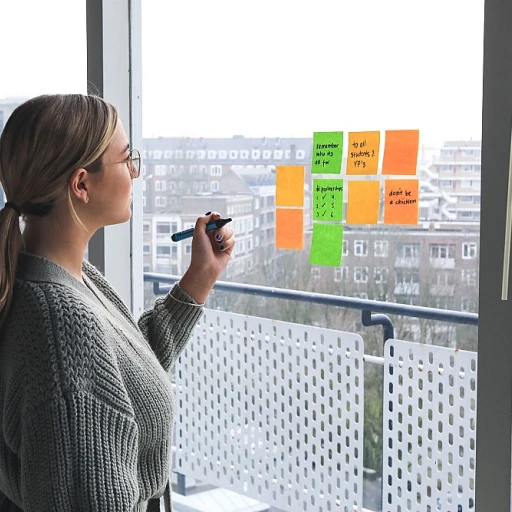Understanding Project Management Domains
Grasping the Complexity of Project Management
Project management domains form the cornerstone of any successful project undertaking. These domains encompass critical aspects that guide a project from its inception through to its delivery. In the context of New Zealand teams, understanding these domains is pivotal for both individual and team performance.
The Project Management Body of Knowledge (PMBOK) guide outlines several domains, such as stakeholder management, risk management, and performance domains, which are particularly relevant for New Zealand's diverse and dynamic work environment. Mastery of these domains ensures that project activities are aligned with the desired outcomes, enhancing the effectiveness of project delivery while managing the intricacies associated with stakeholder expectations.
Project teams must remain adaptable to navigate through the diverse stages of a project's life cycle. Effective team collaboration and a structured development approach facilitate smooth transitions between the various phases of project work. This adaptability in New Zealand teams can also help mitigate potential risks and align team performance with the project’s objectives.
Another factor influencing project management is the domain of team culture. New Zealand teams often embody a unique set of cultural dynamics that can significantly impact project outcomes. Hence, understanding how these cultural elements play into project work can be crucial to maintaining harmony and efficiency among team members.
Project managers in New Zealand must employ a comprehensive approach as they steer their teams through these varied performance domains. This strategic guidance enhances both project management and work performance, ensuring projects are delivered effectively and efficiently.
For further insights and practical tips on enhancing the role of an office manager within New Zealand companies, consider checking this resource on indispensability in a Kiwi company.
Challenges Faced by New Zealand Project Teams
Overcoming Project Team Challenges in Aotearoa
Navigating the complexities of project work in New Zealand presents unique challenges that require astute handling by project teams and managers. With an emphasis on effective team collaboration, project managers frequently encounter diverse obstacles that can impact delivery performance and overall project success. One significant challenge is managing stakeholder expectations. Stakeholders often have varying perspectives and expectations regarding project domains and outcomes. Understanding these differences is vital, as aligning stakeholder requirements is key to enhancing project performance. The diverse nature of projects in New Zealand means project teams must remain adaptable to changing circumstances and varied stakeholder needs. Communication can also be a hurdle for project work efficiency. Despite technological advancements, ensuring clear, consistent, and timely communication among team members across different performance domains is essential. Miscommunications can lead to project performance issues, affecting both the development and delivery stages. Another challenge is the effective integration of risk management practices throughout the project life cycle. Project teams must continually adapt their risk management strategies, ensuring these are aligned with the principles outlined in the PMBOK guide. The dynamic nature of the New Zealand working environment requires that project teams be proactive in identifying and mitigating potential risks to maintain effective project workflows. Team culture plays a pivotal role in tackling these challenges. Cultivating a collaborative team environment where each member is encouraged to contribute ideas and solutions can significantly enhance team performance. Projects can often benefit from a cohesive team culture that promotes shared responsibility and mutual understanding among stakeholders. It's vital to note that the role of an office manager in a tighter-knit corporate culture cannot be underestimated. Their involvement can provide oversight and ensure the alignment of business objectives with project management domains. Overall, overcoming these challenges requires project managers and teams to employ a strategic approach, combining the principles of effective communication, risk management, stakeholder alignment, and fostering a collaborative team culture.Key Strategies for Effective Team Collaboration
Implementing Collaborative Methods for Enhanced Project Team Performance
Successfully managing a project in New Zealand's diverse environments requires a cohesive and collaborative team approach. Effective collaboration within project teams not only enhances project performance but also aligns with the core principles set out in the PMBOK Guide.- Stakeholder Engagement: Engaging stakeholders actively is critical in bridging the gap between project deliverables and stakeholder expectations. Regular interactions and feedback loops support improved project delivery performance.
- Clear Communication Channels: Establishing transparent communication among team members promotes an open culture. Such an approach helps in managing project risks effectively, as potential issues can be identified and addressed promptly.
- Defined Roles and Responsibilities: Clearly defined roles bolster team performance by ensuring accountability and streamlining workflow processes across different performance domains.
- Leveraging Team Diversity: New Zealand teams bring diverse cultural perspectives, which, when harnessed effectively, can lead to innovative development approaches and solutions, enhancing both project work performance and stakeholder satisfaction.
Cultural Influences on Project Management
New Zealand's Unique Team Culture
Incorporating cultural influences within New Zealand project management is crucial to the success of project teams. Understanding and acknowledging the distinct team culture present in New Zealand can aid in enhancing team interactions and improving project outcomes.
The team culture in New Zealand often emphasizes collaborative efforts over individual achievements. This collective approach encourages open communication among team members, and supports a balanced distribution of responsibilities across various project domains. By promoting inclusivity and mutual respect, the project team is guided towards more effective project work and increased overall team performance.
Transformation of Management Styles
New Zealand project managers should integrate cultural values into their leadership styles, which may include adopting a more flat organizational structure. Such an approach fosters a supportive environment where stakeholders, team members, and management can work as cohesive units within established performance domains. Recognizing New Zealand's preference for participative management can drive improved project performance and the delivery of successful projects.
Collaboration with Indigenous Communities
Projects in New Zealand often intersect with indigenous communities, whose perspectives can provide valuable insights into local contexts. A project manager is wise to incorporate these perspectives into project planning and risk management processes. Understanding and engaging with these communities is instrumental for successful project delivery and is deeply ingrained in New Zealand's project management principles, as outlined in the PMBOK Guide.
Technological Tools for Project Teams
Leveraging Technology for Innovative Project Execution
As project management in New Zealand evolves, the adoption of technological tools has become pivotal for enhancing project objectives and delivery performance. The integration of technology within project teams not only streamlines workflows but also facilitates effective communication and collaboration across different project management domains.
One of the critical tools aiding efficient project execution is project management software, such as PMBOK-aligned platforms. These solutions provide a comprehensive overview of life cycle phases and work performance, enabling project managers to track progress meticulously. By utilizing these tools, stakeholders can gain invaluable insights into project activities and risk management strategies.
Furthermore, collaboration technologies foster real-time interaction among team members, which is vital for maintaining strong team culture and boosting team performance. They provide a centralized platform for sharing updates, ensuring that all project work aligns with agreed deliverables. This approach not only optimizes delivery performance but also enhances the overall project performance domain.
Another area where technology has made significant strides is in data analytics and performance monitoring. Through predictive analytics, project teams can proactively manage potential risks by identifying trends and anomalies in project data. This data-driven approach aids in informed decision-making, which is essential for effective project management.
Advanced tools also support agile development approaches, empowering project teams to adapt swiftly to changes and expectations from stakeholders. The dynamic nature of projects in New Zealand requires technological adaptation, ensuring that projects are delivered within scope and on time, thus achieving high stakeholder satisfaction.
In conclusion, the strategic implementation of technology acts as a catalyst for improving work performance and meeting project objectives. As technologies continue to evolve, project teams must remain adaptable and open to integrating new solutions that bolster their management capabilities, ultimately driving projects toward success.
Future Trends in Project Management
Emerging Trends Shaping Project Management
As the landscape of project management continues to evolve, several key trends are emerging that will significantly impact how New Zealand teams operate. Understanding these trends can guide project managers in adapting their strategies to enhance project performance and team collaboration.
Agile and Hybrid Approaches
The shift towards agile methodologies and hybrid approaches is becoming more pronounced. These methods offer flexibility in project work, allowing teams to adapt quickly to changes and manage risks effectively. By incorporating agile principles, project teams can improve their delivery performance and stakeholder engagement, ensuring that projects meet the evolving needs of stakeholders.
Increased Emphasis on Soft Skills
While technical skills remain crucial, there is a growing recognition of the importance of soft skills in project management. Effective communication, leadership, and emotional intelligence are becoming essential for project managers to guide their teams through complex project domains and enhance team performance. This shift aligns with the need for a more collaborative and inclusive team culture.
Integration of Advanced Technologies
Technological advancements are reshaping the project management domain. Tools that leverage artificial intelligence and machine learning are being integrated into project management processes, offering predictive analytics and automation capabilities. These technologies can enhance work performance by streamlining activities and providing insights that guide decision-making.
Focus on Sustainability and Social Responsibility
As awareness of environmental and social issues grows, project managers are increasingly considering sustainability and social responsibility in their projects. This trend is influencing the development approach and project life cycle, encouraging teams to adopt practices that minimize environmental impact and promote ethical standards.
Continuous Learning and Development
The dynamic nature of project management requires continuous learning and development. Project managers and team members are encouraged to pursue certifications like the PMP exam and stay updated with the latest editions of the PMBOK guide. This commitment to professional growth ensures that teams remain competitive and effective in managing diverse project domains.
By staying informed about these trends, New Zealand project teams can position themselves for success in an ever-changing environment, ensuring that they deliver effective projects that meet the needs of their stakeholders.











